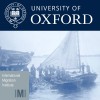Migration through marriage: Analysing struggles around mobility and its control in the European border regime
According to article 16 of the Universal Declaration of Human Rights, 'men and women of full age, without limitation due to race, nationality or religion, have the right to marry and to found a family'. This should entail that citizens from so-called 'third countries' married to a citizen of an EU member state also have the right to enter the Schengen area in order to join their partner, regardless of their social background and resources. However, states intend to regulate migration and during the last decade 'marriage migration' has become a specific target of control. One can observe an increasing problematisation and politicisation of 'marriage migration' – especially from Muslim countries – which led to more restrictive policies towards this group of migrants, for example through required language certificates or verifications of genuine marriages.
In order to analyse the struggles around mobility and its control in the context of 'marriage migration', I carried out multi-sited ethnographic research in Morocco and Germany. In the sense of a 'studying through' (Shore/Wright) I conducted interviews in institutions implementing migration policies, followed different state and non-state actors that are part of the border regime and studied the practices of migrants who attempt to use this legal opportunity for migration. This ethnographic border regime analysis (Transit Migration Research Group) shows that the governing of migration remains an attempt to control rather than effecting a total control of movement, and that marriage becomes an important strategy for mobility through which migrants exercise their agency in order to cross borders and realise their aspirations.




